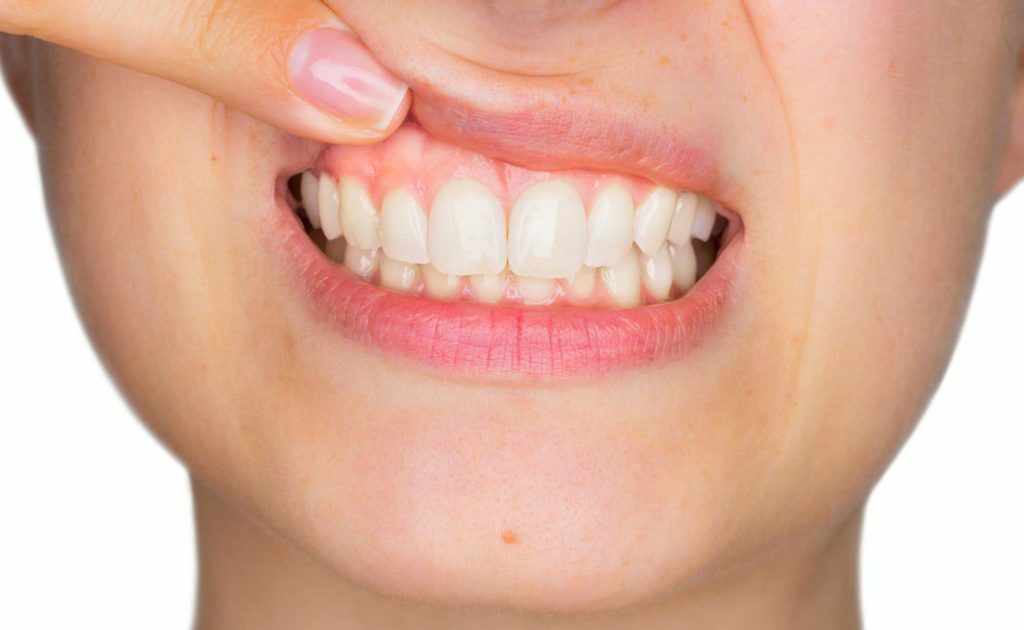Most people instinctively make every effort to keep their teeth clean, shiny and healthy. They use the best electric toothbrush money can buy, they chew gum throughout the day, and they avoid staining or acidic foods where possible.
But when it comes to gum health, the same rarely applies. The buck stops with clean and healthy teeth – gum health often being an afterthought.
Sadly, oral health really does begin and end with healthy gums. Without strong and healthy gums to support your teeth, it’s game over. Precisely why gum health should be shown the same priority as the health of your teeth, along with the rest of your mouth.
With this in mind, what follows is a brief FAQ covering a selection of important issues on gum health and hygiene. All in the name of keeping that shiny-bright smile happy and healthy for life!
Q. Why Do My Gums Feel Slimy in a Morning?
First up, that weird slimy-feeling coating that covers your gums, your teeth and the insides of your cheeks each morning is actually perfectly normal. Known as biofilm, it’s a thin layer of beneficial bacteria that plays an important role in keeping your mouth healthy.
There’s nothing you can do to get rid of this biofilm permanently, and nor should you attempt to do so. Brushing, flossing and using the best dentist recommended mouthwashwill remove it temporarily, after which it will manifest once again. But if you fail to regularly remove this biofilm as part of your oral hygiene regime, it quickly becomes a breeding ground for bad bacteria.
Left to its own devices, biofilm can build and develop into dental plaque and tartar. Both of which pose a huge threat to your gums and can increase the risk of gum disease.
Q. Are Bleeding Gums Ever Normal?
The fact that most adults will on occasion see traces of blood on their toothbrush after cleaning their teeth means the whole thing is assumed to be normal. It’s so commonplace that it happens to most people from time to time, therefore cannot be a big deal…right?
Wrong – bleeding gums without exception are a sign that something isn’t as it should be.
Gum disease – aka gingivitis – is also something most adults will experience at some point during their life. Bleeding gums are one of the earliest indicators of gum disease, which if addressed early can be treated with relative ease.
This is why traces of blood in the sink or on your toothbrush should never be ignored. It’s unlikely the blood on your brush indicates anything serious, but is nonetheless an urgent prompt to halt gum disease in its tracks.
If in doubt, consult with your dentist for the recommended products to get your gums back in order.
Q. Are Receding Gums a Big Deal?
The short answer is yes, they are. By the time an issue with receding gums becomes noticeable, you’re already reaching the middle stages of gum disease. Which means the condition has already taken a major toll on the health and integrity of your gums.
When gums recede, they expose the lower part of the tooth that is normally protected. This leads to an elevated risk of harmful bacteria causing a major threat to these more sensitive areas of the mouth. Loss of dentin, infections, decay and tooth loss may quickly follow, unless the issue is treated as a matter of urgency.
There’s much that can be done to halt receding gums in their tracks, and to compensate for the damage already done. Don’t wait – speak to your dentist as soon as you detect any potential gum health issue.
Q. Is Mouthwash Useful in Maintaining Healthy Gums?
Mouthwash is not just useful in maintaining healthy gums, it’s absolutely essential. This is due to the fact that irrespective of how meticulously you brush your teeth, you don’t brush your gums in the same way. And nor would you be expected to, as doing so could cause more harm than good.
This is where mouthwash comes into play, killing bacteria and eliminating sticky plaque film in places missed when brushing. The highest quality mouthwash products on the market are designed to provide 24 hour protection from potentially harmful bacteria, when used twice daily.
Specialist mouthwash products can also play an essential role in halting and reversing the early symptoms of gum disease.
Q. Does Bad Breath Indicate Gum Disease?
Possibly, though there are countless other issues that may be causing the problem. When bacteria collects excessively in the mouth and causes gingivitis, one of the most noticeable symptoms is bad breath. But this does not necessarily mean that bad breath alone indicates gum disease.
Other issues such as dry mouth, sinus congestion and various gastrointestinal problems can also lead to bad breath. If stepping up your everyday oral hygiene regime doesn’t turn things around, speak to your doctor or dentist. The key to bringing bad breath under control lies in first finding out what’s causing it.
Q. Can Flossing Do More Harm Than Good?
Last up, this is a myth cooked up by those purely looking for an excuse not to floss. Or perhaps, those who confuse the early signs of gum disease for something else.
It’s assumed by many that the somewhat abrasive nature of flossing poses a risk to gum health. In reality, this simply isn’t the case at all. For one thing, flossing should never be performed in a way that is aggressive or abrasive. Secondly, to skip flossing is to allow bacteria and debris between the teeth to compromise the health of your entire mouth.
Lastly, anyone concerned about the ‘abrasive’ nature of conventional floss could always switch to a super-gentle yet effective water flosser. And again, traces of blood visible during or after flossing are rarely attributed to the flossing process itself. They’re almost certainly an indicator of the early stages of gum disease, and should be addressed as promptly as possible.
